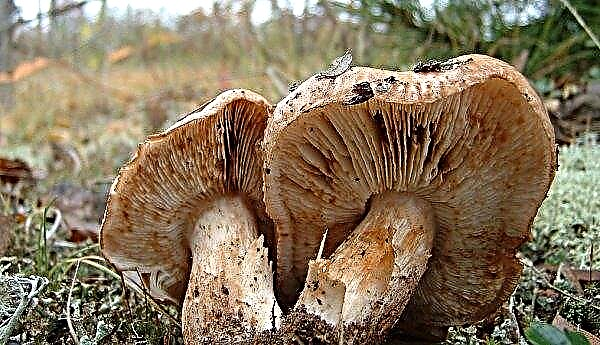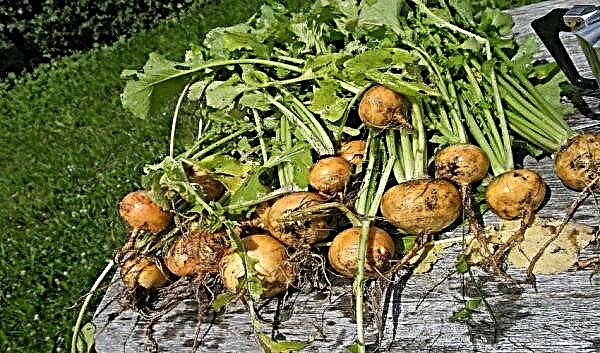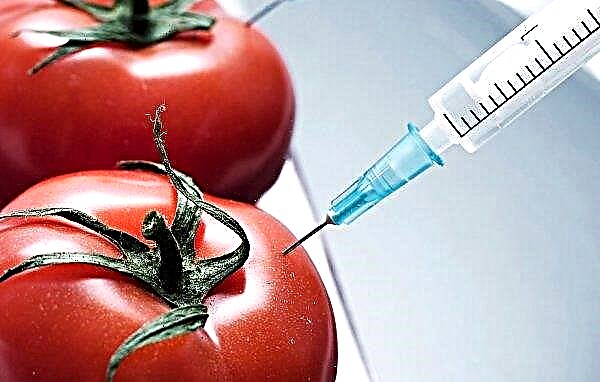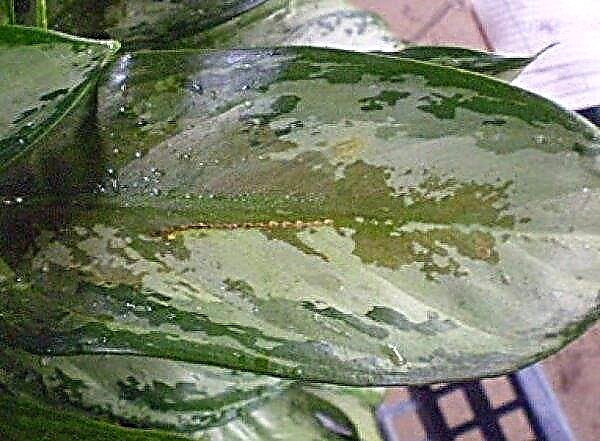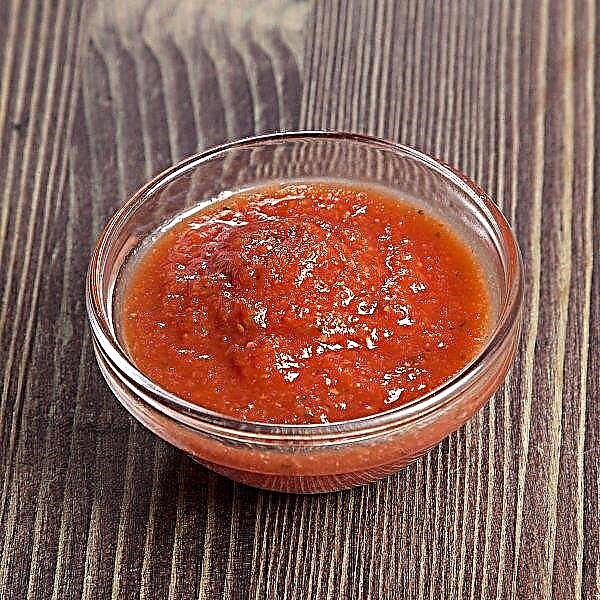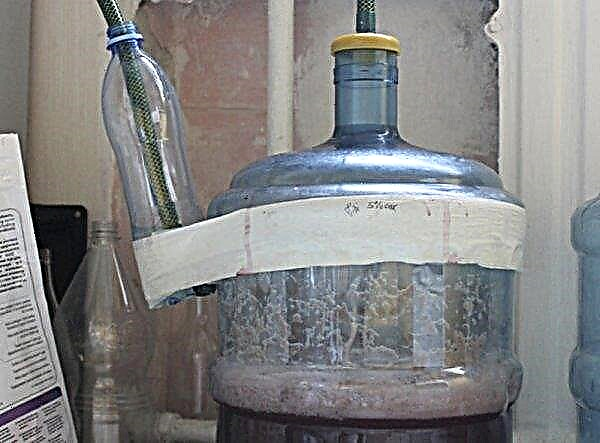Gastritis is a commonly diagnosed disease in the population. It is fraught with exacerbations and in the absence of treatment, non-compliance with the recommended diet can go into a chronic form. Sauerkraut is a popular product in our country and a source of vitamins in the winter. But its inclusion in the diet for gastritis has its own characteristics.
Sauerkraut for the stomach
Sauerkraut is a useful product, but for some diseases its use should be approached with caution.

The benefits and harms of sauerkraut
- Sauerkraut for the human body is useful as follows:
- fermented vegetable contains in its composition the necessary trace elements for health. There is a lot of ascorbic acid in it, there are B vitamins, vitamin E, K, PP, A and beta-carotene. The mineral composition is represented by potassium, sodium, calcium, magnesium, phosphorus, iron, manganese, copper, selenium and zinc.
- the product strengthens the immune system.
- It contains vitamin U, which creates a "barrier" for the appearance of ulcers in the digestive tract.
- antioxidants and sulforaphane inhibit the development of cancer and protect against infections.
- lactic acid bacteria in the pickled product improve intestinal microflora and displace pathogenic microflora, improve digestion.
- lowers cholesterol, prevents the occurrence of cardiovascular disease.
- helps reduce blood sugar and is recommended for diabetics.
- it is a good remedy for constipation and vitamin deficiency.
- its stable use reduces the frequency of asthmatic attacks.
Many properties of sauerkraut lead to the fact that frequent consumption of sauerkraut is a prevention of gastritis and stomach ulcers.
Did you know? For pickling cabbage in a ten-liter container, it is enough to add only 2 tablespoons of table salt, since the fermentation processes are due to lactic acid bacteria and the presence of sugars in this vegetable. In the Balkans, cabbage is fermented without salt at all. Such a product is more useful, but less stored.
- But this useful fermentation product can harm the body, namely:
- it should be borne in mind that the coarse fiber found in cabbage leaves is poorly absorbed and impedes digestion, can cause increased gas formation; acids in the pickled product irritate the gastrointestinal mucosa;
- high salt content keeps fluid in the body, which contributes to high blood pressure.

- Sauerkraut is not recommended in the following cases:
- hypertension;
- urolithiasis and gallstone disease;
- renal failure;
- pancreatitis in the acute phase;
- exacerbation of gastrointestinal diseases and peptic ulcer.
The use of gastritis of different acidity
The inclusion of an acidic vegetable culture in the daily diet can serve as a prevention of gastrointestinal diseases (gastritis, ulcers and dyspepsia). If these diseases are already present in your history, then you need to get a doctor's advice on nutrition. The acidity of the stomach and the form of the disease affect the level of consumption of this product.
Important! When using sauerkraut and brine for gastritis, you should take into account the reaction of your body. If after eating, heartburn, pain and gastrointestinal upset, swelling or palpitations begin to bother, then the product should be excluded from the diet.
Fermented vegetable is prohibited for use during exacerbation of the disease. It can only be used during remission. It is forbidden to dishes in which sauerkraut product is combined with hot pepper, since spicy food is contraindicated in gastritis and stomach ulcers.

Fermented vegetable will be useful for low acidity, as it improves appetite, affects the production of acid and the absorption of food. But with gastritis with increased acidity of the stomach, such a product should be eaten in a limited amount. It is better to give preference to a stewed dish.
Use for peptic ulcer
Sauerkraut can be consumed in diseases of the gastrointestinal tract. Especially useful is a brine containing vitamin U, which helps to heal wounds, erosions and ulcers, since it is not as irritating to the mucous membranes as the vegetable product itself. The liquid fraction creates a favorable environment for beneficial bacteria, inhibiting harmful microorganisms. This is an excellent preventive measure for the appearance of gastrointestinal problems, including peptic ulcer disease.
Did you know? German scientists conducted research and determined that the consumption of sour cabbage 2-3 times a week serves as a prevention of the appearance of cancer of the intestine.
Consume a fermented vegetable should only be in remission, in the absence of a high level of acidity. Gastritis and ulcers are recognized by doctors as precancerous conditions and regular consumption of a fermented product will be a good prevention of diseases of the gastrointestinal tract.
 But if unpleasant symptoms occur after eating a vegetable dish, cabbage should be excluded from the menu.
But if unpleasant symptoms occur after eating a vegetable dish, cabbage should be excluded from the menu.
Sauerkraut treatment
This useful product uses traditional medicine to treat certain diseases. For this, pickled cabbage brine is used, since it does not have coarse fiber, but a lot of organic acids and lactic acid bacteria.
Important! Treatment with cabbage brine is carried out only during a period of persistent remission of gastrointestinal diseases and taking into account contraindications. Before use, you should consult your doctor.
For medical purposes, sauerkraut juice is used as follows:
- To combat tapeworm (worm-parasite) is drunk during the day 0.5 liters (before meals) for 3-4 weeks.
- From Giardia (protozoan parasites) should drink 0.5 cups of brine half an hour before meals.
- During the common cold recommend drinking juice, diluting with warm water in a ratio of 1: 1, 2-3 glasses per day, until recovery. Brine restores water balance in the human body. This drink is especially useful for pneumonia.
- With atrophic gastritis it is necessary to drink 2-3 tablespoons of juice in a warm form for half an hour before eating - the first 14 days. And then gradually increase the dose to 0.5 cups. The course of treatment is a month.
- With peptic ulcer of the stomach and duodenum you need to drink this liquid 60–80 ml 3 times during the day, 60 minutes before the main meal. The course of admission is 14–20 days.
- Children, to eliminate worms, you need to give 90-200 ml (depending on the age of the child) of this product 2-3 times a day, on an empty stomach.
- Headache a compress of sauerkraut, which is wrapped in a piece of gauze, helps well. Such a compress is placed in the temple area and fixed with a towel. You can put sauerkraut leaf on your forehead for 25-30 minutes and drink 125 grams of brine 3 times a day.
- With liver diseases recommend taking 250-500 ml of a mixture of brine and tomato juice (in equal proportions).
- For heartburn “Saves” the reception, on an empty stomach, two or three tablespoons of this product.
- With burns, wounds, insect bites a layer of acid cabbage is applied to the lesion site, and on top of the vegetable layer - a piece of gauze moistened with its juice, is fixed with a bandage. The compress is removed after 40-60 minutes. The dressing is changed 3 times a day. If the brine caused a burning sensation, then it is diluted with boiled water in a ratio of 1: 1.
It is worth recalling once again that taking sour cabbage and its brine helps with early toxicosis in pregnant women, is indicated for epileptics and is acceptable in the nutrition of diabetics.
Sauerkraut and its brine are useful products that contribute to the prevention and treatment of gastritis, but these products should be avoided or limited with increased acidity of gastric juice, ulcers and other problems in the digestive tract. Fermented vegetables are eaten exclusively during remission, taking into account the reaction of the body.

